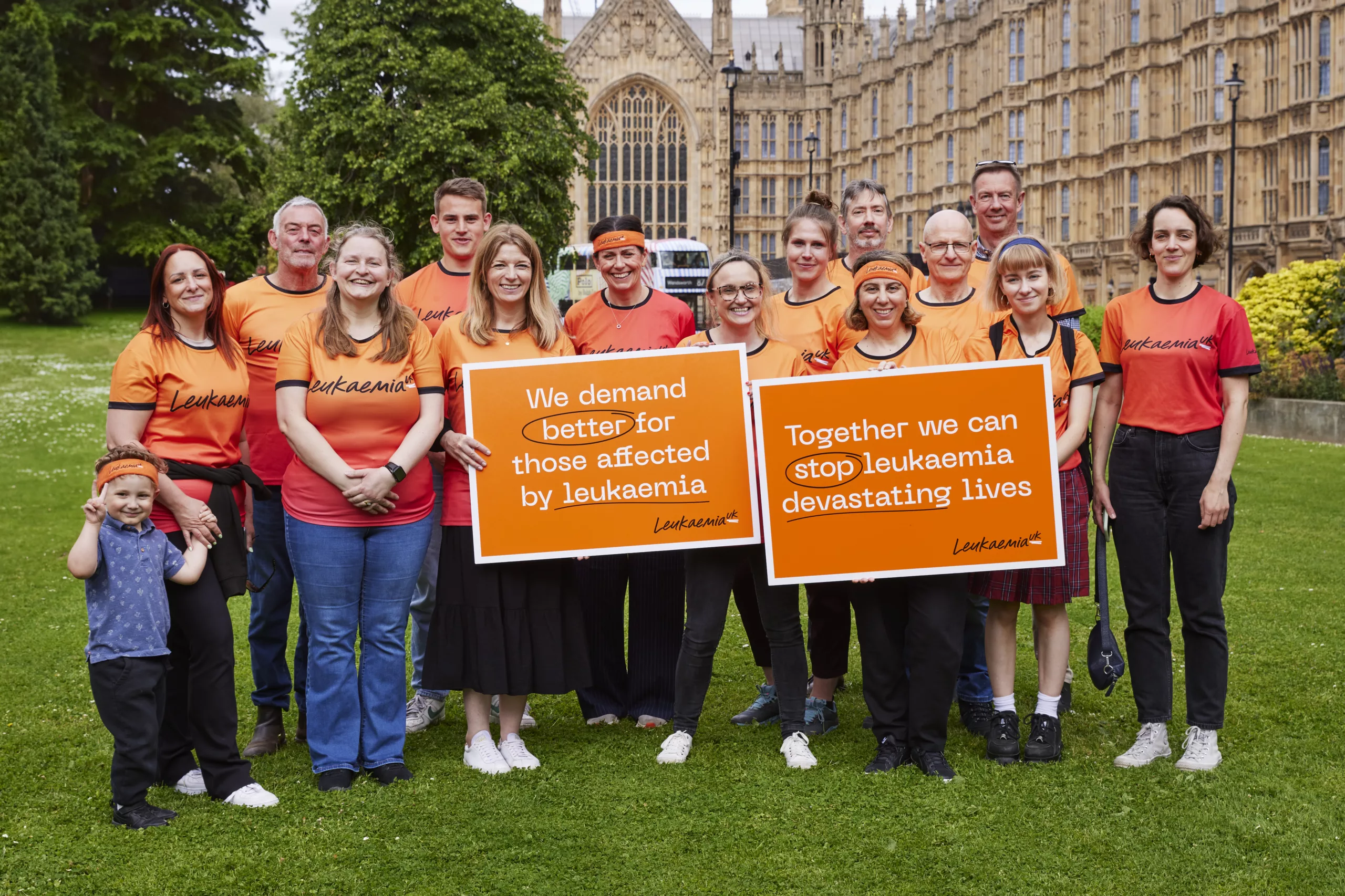Policy & advocacy
What if national level policies could go further to improve the lives of people affected by leukaemia? At Leukaemia UK we are determined to make sure this happens.

What do we do?
Our policy and advocacy work is based on demanding better for those affected by leukaemia and related conditions – no matter who or where they are in the UK.
We work to understand key challenges facing patients, to develop solutions, and to encourage those responsible to implement these solutions.
We listen and we elevate
We are determined to place the voices of patients and their loved ones at the heart of what we do.
We understand that those who have experienced the impact of leukaemia, or a related condition, have a wealth of skills and experience. This insight can help us in our efforts to shape policy.
Patient Advocacy
Our Patient Experience Advisory Panel allows us to listen to the priorities of patients. It helps us to understand – from their experience – what decision makers should be doing to address challenges and spread good practice.
You can find out more about the Panel, including information on how to join, at the bottom of this page.
Take action. Save lives.
Acute myeloid leukaemia (AML) still has one of the worst survival rates for any type of cancer, with just 22% surviving beyond five years after diagnosis. Our report ‘Take action. Save lives’ details the facts and stats about leukaemia in the UK and outlines five key priorities that we’re asking the Government to ensure are included within the new Cancer Strategy.
We collaborate
As well as engaging with those making national level decisions we collaborate with other charities.
This allows us to understand the best possible solutions to problems facing the leukaemia and wider cancer community. And to bring collective recommendations to policy makers.
The Blood Cancer Alliance
As a member of the Blood Cancer Alliance, we work with 14 other charities to tackle the issues all blood cancer patients face. We also work to improve the experience and outcomes of all those living with blood cancer, including those with leukaemia.
Cancer 52
We are a member of Cancer52. Cancer 52 is a national policy and campaigning charity of over 100 small charities that represent less common and rarer cancers. Although less common, these cancers account for more than half of all cancer deaths in the UK. The aim of Cancer 52 is to promote improved diagnosis, treatment and support for those affected by rare and less common cancers.
#TheForgotten500k
There are at least 500,000 people in the UK who are immunocompromised. We are proud to be collaborating with several other charities in efforts to ensure their needs are met and to protect them from Covid 19. You can find out more about some of our work in this area.
Join us in demanding better for our community
There are several ways you can become involved in our policy and advocacy activity.
If you or a loved one has experience of leukaemia or a related condition you can join our Patient Experience Advisory Panel.
You can also follow us on Twitter, where we share news and information relevant to our work.
Leukaemia UK’s vision is to stop leukaemia from devastating life. Saving and improving the lives of those affected by leukaemia and shining a light on the issues they face is at the heart of what we do. Leukaemia UK complies with all electoral law and regulations, and we’re committed to conducting our activity in a way that’s politically impartial.


